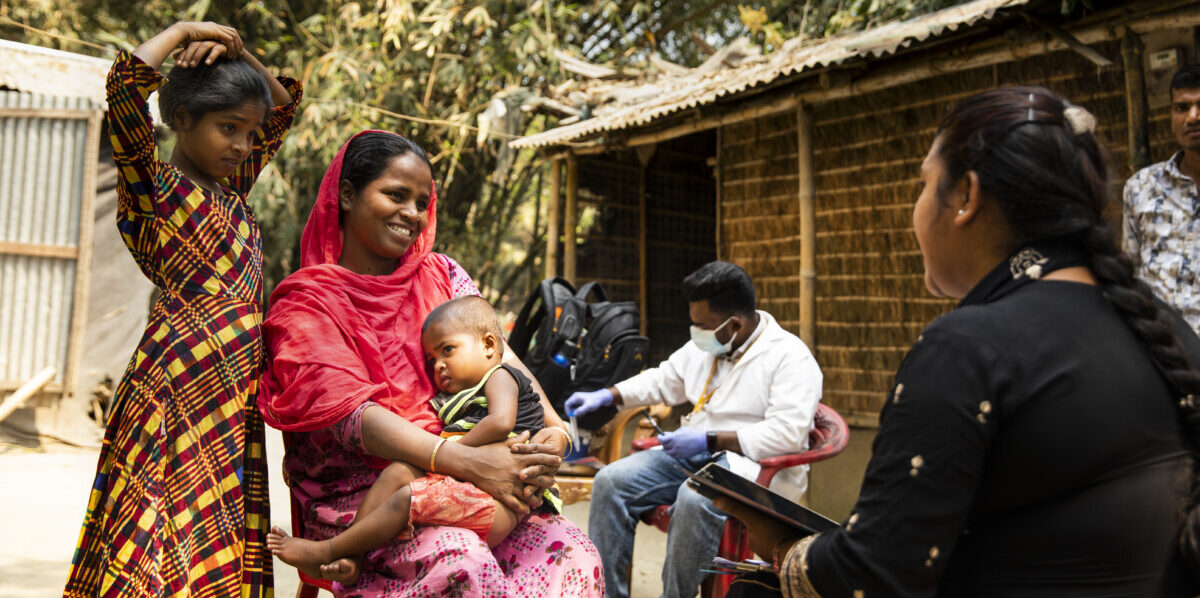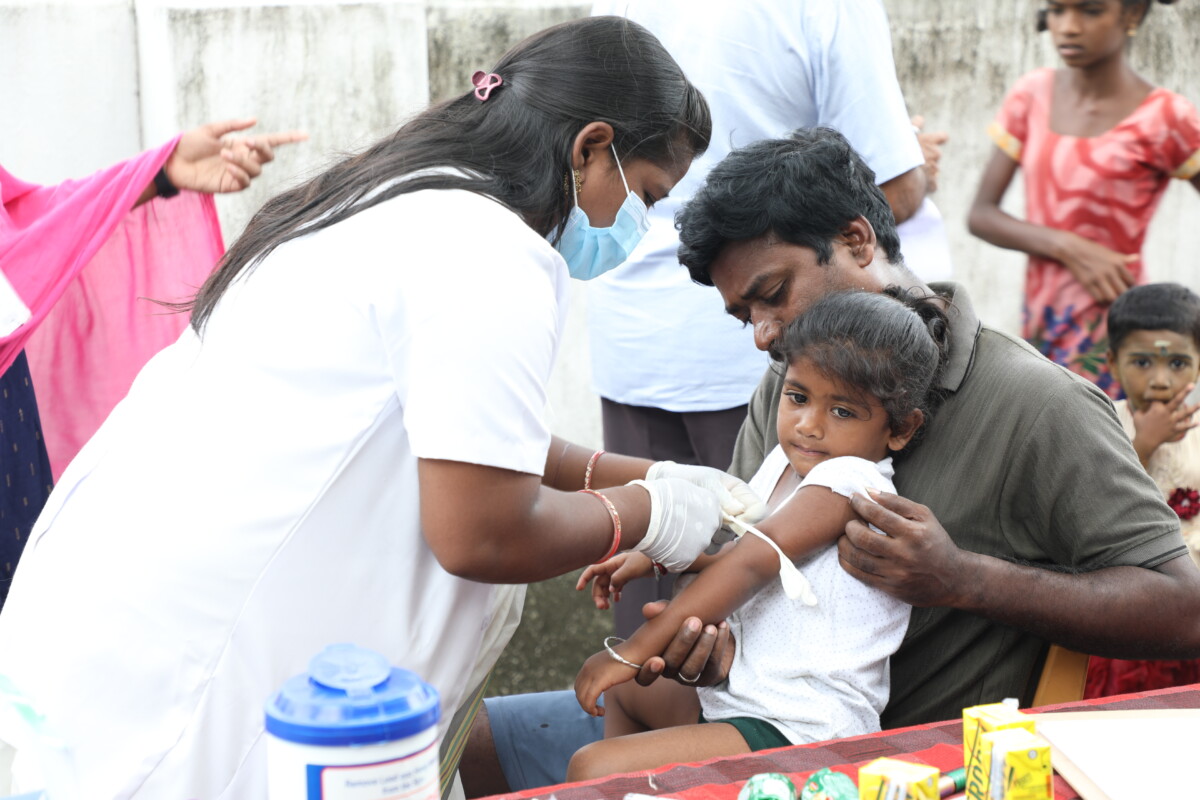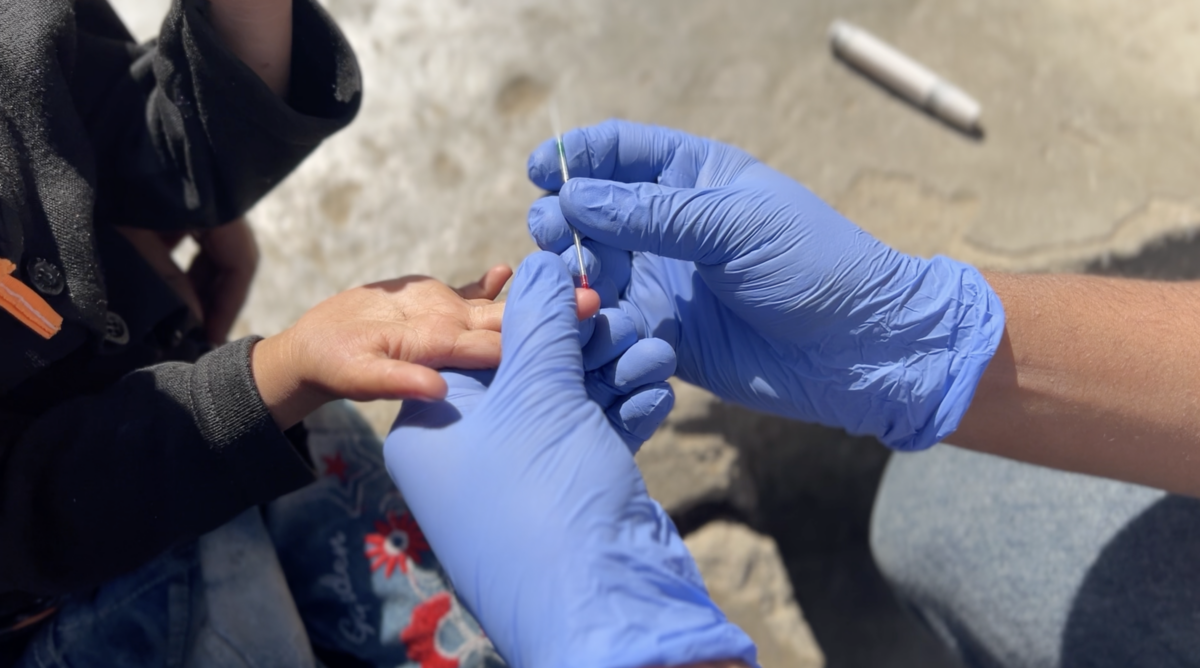Health Surveillance is Key to Pure Earth’s 5-Phase Approach to Solving Lead Poisoning
Pure Earth’s proven 5-phase approach to solve global childhood lead poisoning was developed from experience gained from conducting over 50 projects to mitigate lead exposures in a range of low and middle-income countries.
About Health Surveillance
Conducting baseline blood lead level (BLL) testing and analysis is crucial to understanding prevalence, severity and locations of lead exposure. Pure Earth collaborates with governments to enhance health surveillance. Since 2018, Pure Earth has collaborated with nine countries (Bangladesh, Colombia, Ghana, India, Indonesia, Kyrgyzstan, Mexico, Peru, and the Philippines) to implement large scale blood lead level surveys.
The assessments are groundbreaking, most of which are taking place for the first time in these impacted countries. The data and analyses provide the underpinnings for national action plans and baselines to track progress and identify potential new sources of lead exposures.
Global Blood Lead Level Testing Programs
Pure Earth collaborates with governments to enhance health surveillance. Since 2018, Pure Earth has collaborated with nine countries (Bangladesh, Colombia, Ghana, India, Indonesia, Kyrgyzstan, Mexico, Peru, and the Philippines) to implement large scale blood lead level surveys.
In Ghana, Pure Earth worked with UNICEF, the Ghana Health Service, and the Ghana Standards Authority to test approximately 3,000 children across 9 towns and 3 regions.
In Bangladesh, Pure Earth worked collaboratively with partners including Stanford University and icddr,b to test 500 pregnant women and 898 children living in four northern rural districts
In Indonesia, working with partners, at the Faculty of Medicine at the University of Indonesia, Pure Earth tested 567 children, along with 153 adults living in four lead affected areas.
In India, Pure Earth and Vital Strategies tested 697 children and 55 pregnant women in 8 districts across Bihar state. In addition, 120 children were tested in Tamil Nadu.
In the Philippines, Pure Earth, in partnership with the Food and Nutrition Research Institute of the Department of Science and Technology, continued a national BLL survey launched in 2021 of around 3,000 children ages 6 through 9, and pregnant women in 25 sites.
In Mexico, the National Health Service included BLL testing in its national health survey for the second time, providing critical surveillance continuity. In addition Pure Earth supported the National Health Service’s analysis of lead poisoning prevalence, disease burden and associated economic costs.
New Program: Strengthening Health Systems to Reduce Lead Exposure
In 2023, with a grant from Takeda Pharmaceutical Limited (Takeda), Pure Earth launched Strengthening Health Systems to Reduce Lead Exposure, a partnership between Pure Earth and the Ministries of Health in Colombia, Indonesia, Kyrgyzstan, Maharashtra, India, and Peru to strengthen each country’s national healthcare system to better prevent, identify, and treat lead poisoning.
Pure Earth will be collaborating with the ministries of health in each country to design and implement new national programs to identify, monitor and reduce lead exposure.
By enhancing clinical education and guidelines, strengthening health surveillance technology, and educating teachers and parents on the dangers of lead, countries will be able to better protect children and future generations from lead poisoning.





